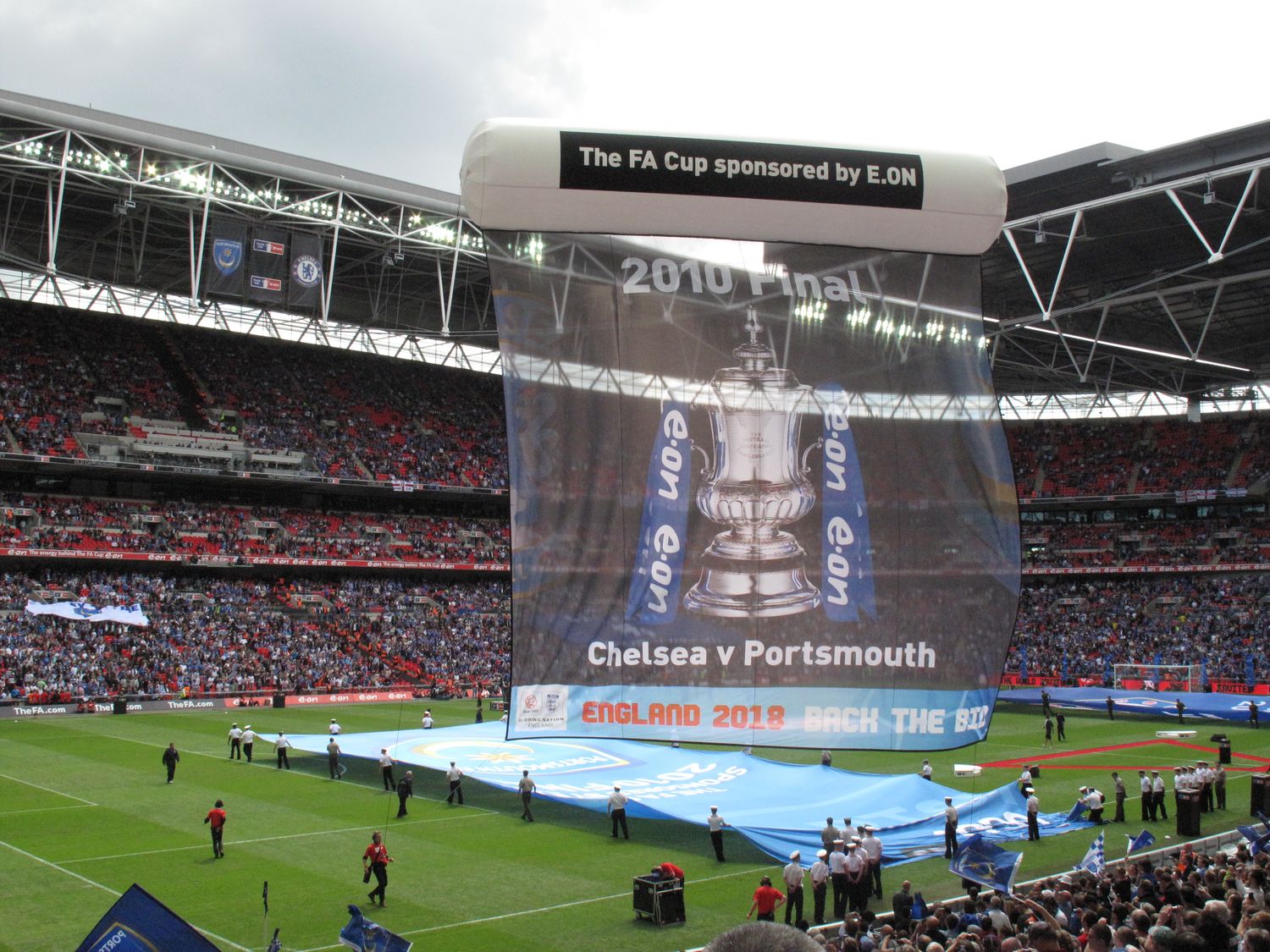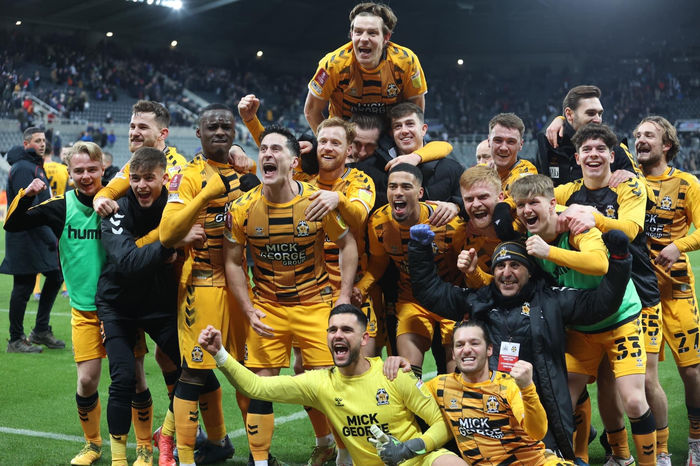On the 13th February 1879, eleven men from a small working-class town in the north-west of England lined up at the Kennington Oval against eleven ‘gentlemen’ in the fourth round of the FA Challenge Cup. The tie was Old Etonians vs. Darwen F.C. This was the very essence of an underdog story. Darwen were facing a side who had twice reached the final of the competition. Worse, they were facing a side of true amateurs, public schoolboys, the ‘inventors’ of the game. Indeed, it was precisely this, the unprecedented competition between the working and middle class facilitated by the open nature of the competition, that boosted the popularity of the sport in these early days. On that winter’s day in South London, the men from Lancashire came back from 5-2 down to force a replay three weeks later. When the first replay wielded another draw, a third game proved too much for Darwen F.C.
So, the magic of the cup goes back a long way. In fact, this year, we celebrate its 150th anniversary. But the FA Cup is currently in a worse state than ever. Every year, we are told what it used to be like, what it used to mean. When the final comes around each May, pundits of Gary Lineker’s vintage remind us of those famous summer days at the Old Wembley. Nowadays, the FA Cup sits clearly behind the Champions League, the Premier League, and international tournaments in the pecking order of popularity. But I guess everything has its own life expectancy. Take cricket, for example, which predates football in England by at least half a century. The quintessential British sport is, these days, on a life support machine, being kept upright by bright new ideas, of which The Hundred is just the latest. The desperation to attract the next generation through modernisation and simplification is palpable. But what if it works? Perhaps football ought to follow in the footsteps of its older brother.
“What makes a tournament so enjoyable is high-stakes drama: win or lose, go through or go home. The possibility of endless draws is quite literally the antithesis”
At times, the FA Cup can feel like a window into the past. The fact that replays are still depended upon as a tiebreaker in 2022 is incredible. The solution first employed almost 150 years ago to the day (6th January 1872) was still being used to decide finals in 1993. And it is clear that replays are one of the fundamental factors in the decline of the FA Cup’s popularity. What makes a tournament so enjoyable is high-stakes drama: win or lose, go through or go home. The possibility of endless draws is quite literally the antithesis. In fairness, since Alvechurch Town qualified for the First Round Proper of the 1971-72 edition of the competition after their fifth replay against Oxford City, the usage of replays has slowly been phased out, and Covid-related fixture problems have forced the FA to take the “exceptional decision” to abandon replays as of the Third Round for this season. But without the impact of the pandemic, the FA would have stuck by its quirky anachronism, at least up until the Fifth Round, at which point extra-time and penalties are now used.
If Britain as a society is nostalgically conservative, then its footballing population is even more so. To suggest a change to anything older than a decade is essentially blasphemous. In France, however, this is not so much the case. Having lived in the country for the past four months, attended three different Coupe de France games, and watched many more, it appears that the French might actually know better when it comes to domestic knockout football. A number of things have struck me about the Coupe de France, all of which contribute to the crucial sense of journey, odds, and drama. Unfortunately, a number of examples are uniquely French (like the inclusion of teams from French overseas territories), but one is certainly something from which England might learn a thing or two.
“If we take just one thing from our continental counterparts, I suggest it be their newfound, ruthless tiebreaking solution. If we really want to retain the magic of the FA Cup, this is what it will take”
In following the Coupe de France this season, my first impression was that there seemed to be a far greater frequency of ‘David vs. Goliath’ matches, those with vast discrepancies between the status of the two teams. Upon investigation, it appears there is some truth to this inclination. For example, in the first round in which the nations’ top twenty sides enter the competition (in England the infamous third round, in France the less catchy Round of 64), the average positional gap between teams drawn against one another this season was 34.9 in England and 39.4 in France.
In truth, the 4.5 differential between the two is not massively significant. But what has become clear is that 39 places in the French footballing pyramid means a lot more than 35 in the English. Firstly, because English leagues are bigger, containing between 20-24 teams (whereas France’s divisions diminish to 14 by the fifth tier); and, secondly, because amateurism begins a lot sooner in France. That is to say, England boasts 92 professional football clubs, whereas France maintains only 40 (soon to be 38 with the contraction of Ligue 2 to 18 teams due for 2024). Therefore, the average positional difference of 39 essentially dictates that any professional club is virtually guaranteed a cup tie against an amateur one. Perhaps the strength of the English leagues takes away from the beauty of the cup, yet I’m hardly suggesting we scrap League One and Two for the sake of better FA Cup fairytales.
But I do believe we ought to learn from the French system of tiebreaking. While France dabbled with the usage of a Champions League-style, two-leg format in the 1970s and 1980s, by 1989 it became necessary that all ties be decided by a single match. Originally, this was accomplished through extra-time and penalties but, fascinatingly, as of last season extra-time was abandoned altogether. Now, after ninety minutes of football, two sides proceed directly to a penalty shootout. This, to me, is the definition of drama. And this has been proven just this week. Last Tuesday (04/01), Lens came back from 2-0 down to tie the game in the 95th minute, taking the game directly to penalties. Stepping up to take the tenth penalty of the shootout, Seko Fofana, the scorer of both Lens goals, converted from the spot and put the final nail in the coffin of the Ligue 1 holders. But penalties have a more profound impact, too: it significantly improves the chances of an upset. In the Round of 32, which took place last weekend, two of the three ‘surprises’ (that is, matches won by a team in an inferior division) were the result of a penalty shootout.
If we take just one thing from our continental counterparts, I suggest it be their newfound, ruthless tiebreaking solution. If we really want to retain the magic of the FA Cup, this is what it will take. While it may never be possible to compete with the popularity of the Premier League juggernaut, this modernising principle would certainly be a step in the right direction. Ultimately, the move is well within the spirit of the competition: the FA Cup is founded upon the notion of the underdog. And, while it is certainly a part of FA Cup tradition, in reality the replay smothers the chances of success for the smallest teams. Since 1993, we have been edging closer and closer to the new age. Now, it is time to commit.


